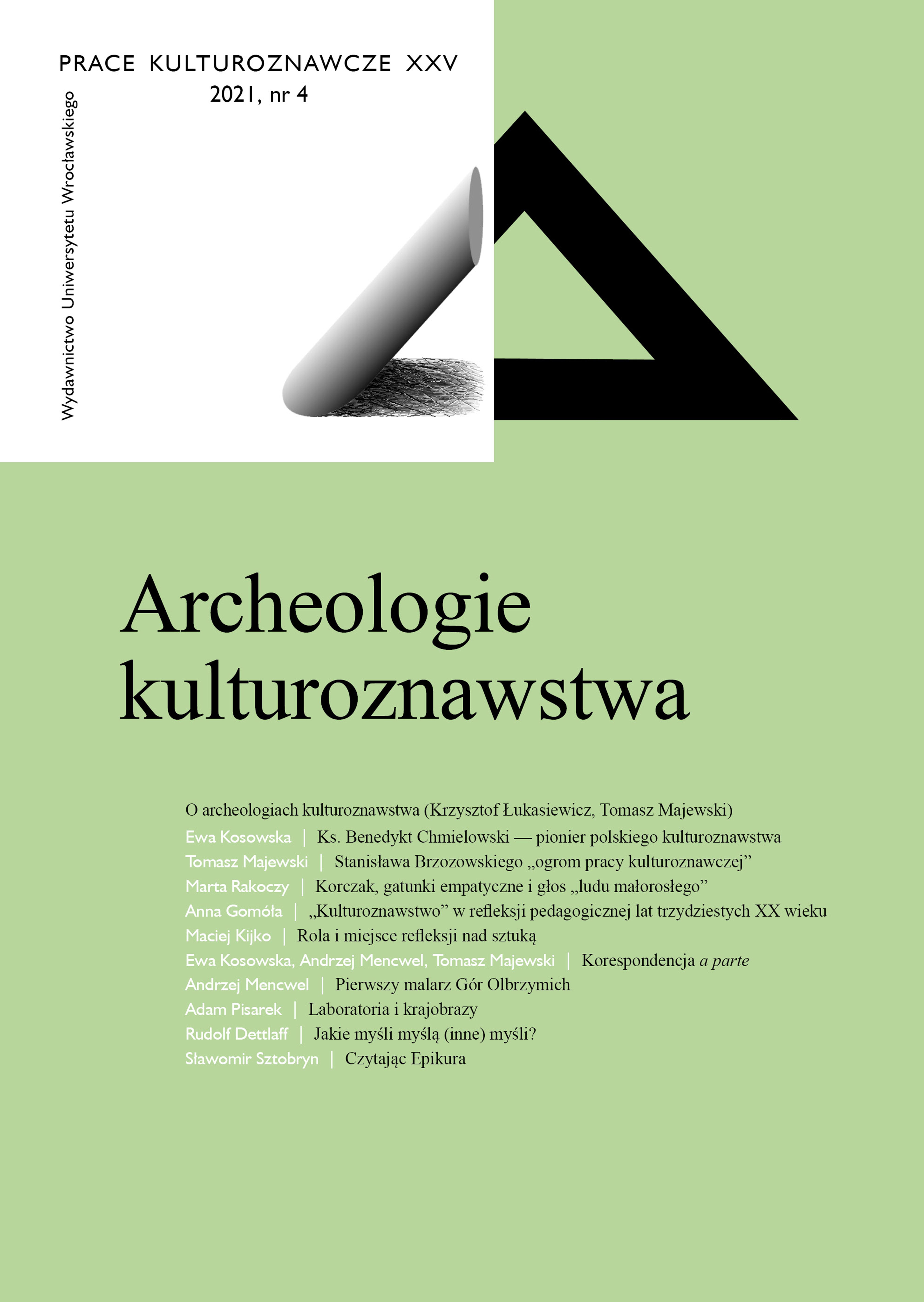

Studies

Polish culturology have a several decades-long tradition as a field of study and a dozen-year tradition as a scientific discipline. As a result of formal changes, a few years ago it ceased to be a separate discipline and became part of the discipline called cultural and religion studies. Nevertheless, the traditions of culturology in Poland are much older and date back at least to the turn of the 19th and 20th centuries. The question that appears is whether this border can be moved back even further. The author puts forward the thesis that a holistic approach to learning about the world and man, close to some culturologists, can be found in the thought of seventeenth- and eighteenth-century encyclopaedists. As an example, the author cites Nowe Ateny [The New Athens], a compendium by Fr. Benedykt Chmielowski (1700–1763), who in the middle of the 18th century decided to describe “the entirety of the world in brief words.” The author draws attention to several aspects of this work which allow to connect the thought of Fr. Chmielowski with contemporary culturological thought. The thus far unnoticed fact that in Nowe Ateny [The New Athens] it is probably the first time in Polish literature when the word “culture” has been employed in one of the meanings used today, is also being introduced in the article.
The author proposes a look at Nowe Ateny [The New Athens] from the culturological perspective and considers its author to be one of the pioneers of Polish culturology. There are no doubts that Fr. Chmielowski used the word cultura and applied it primarily to the culture of the language. The free use of language, or more precisely two languages at the same time (the effect of the macaronic Polish language), was in his opinion a manifestation of high personal culture, but the range of phenomena he describes anticipates the later, broad understanding of culture as human achievements. The merits of the author of Nowe Ateny [The New Athens] are, however, only a pretext for presenting the general state of culturological reflection on the ways of understanding the word “culture,” and the reasons for resigning from specifying the research field of the discipline.